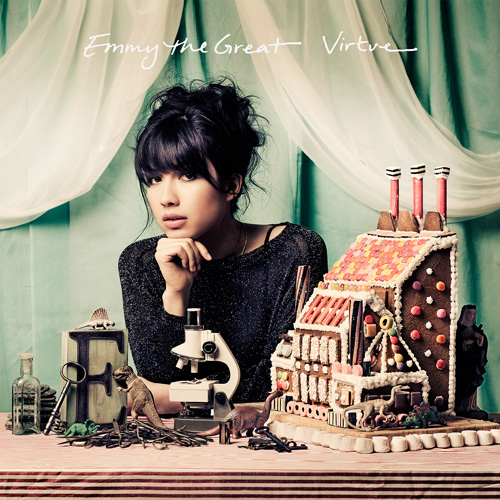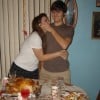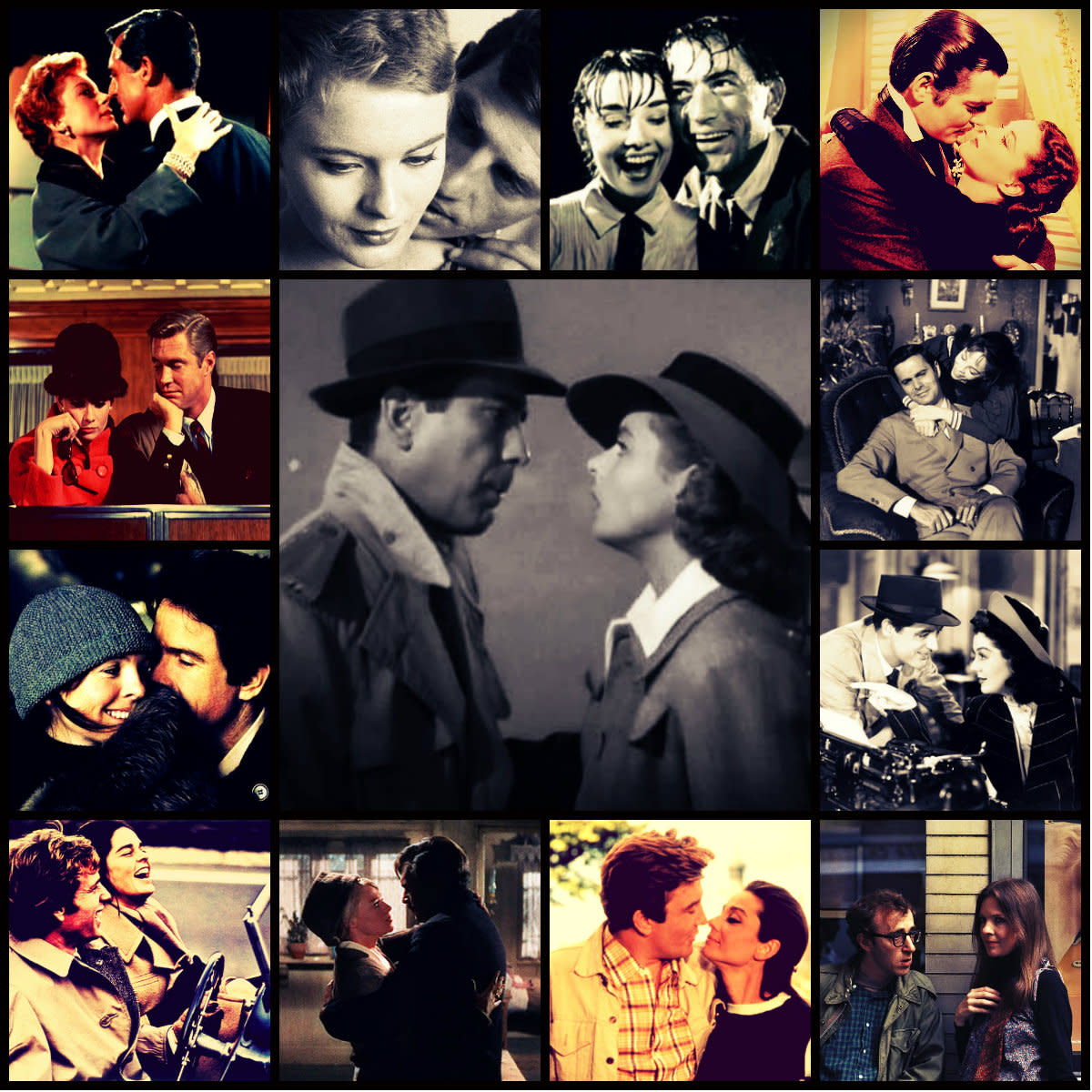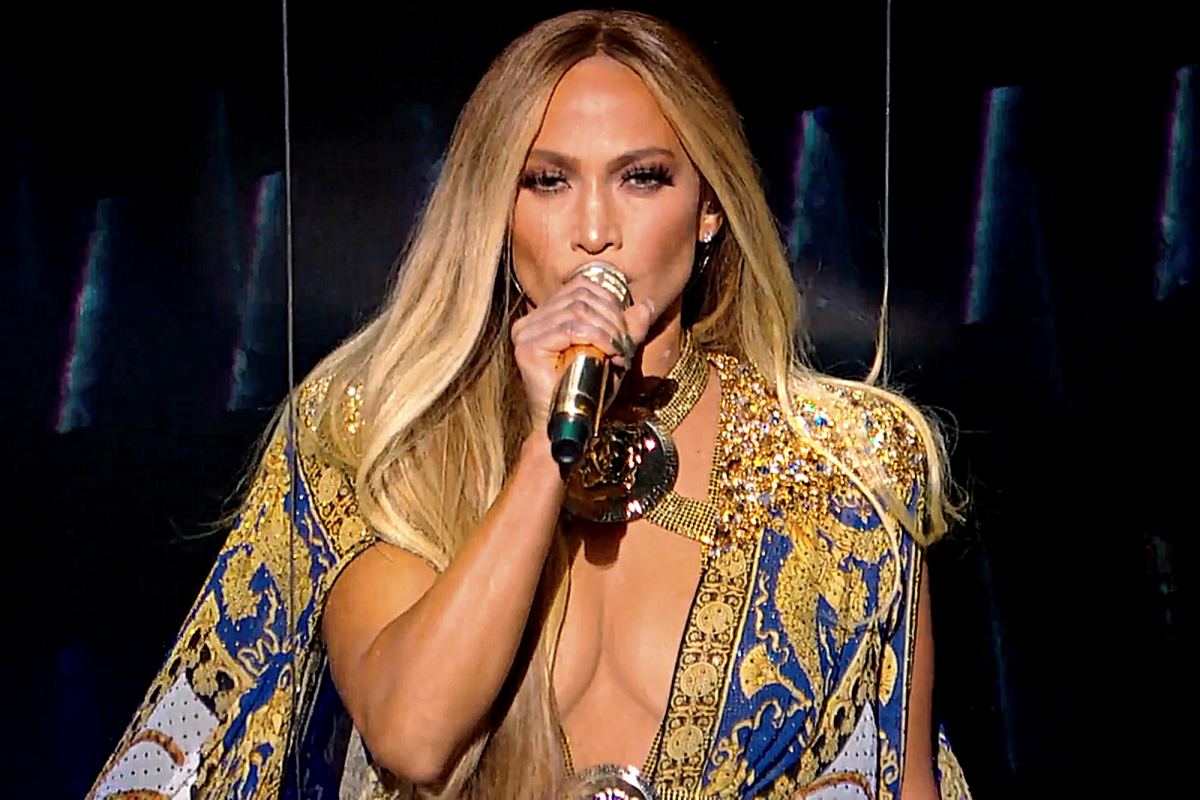Album Review: Emmy the Great - Virtue

Video: Paper Forest
The "Secret Circus" EP never really sounded like music to me, but when Emmy the Great released her debut Album, "First Love," in 2009, I was pleasantly surprised. "First Love" struck a nice balance between the acoustic stylings of quirk-a-licious indie pop and the darker, more resonant themes of genuine folk music. The album's only flaws were an absurd number of contrived cultural references (the names of Billy Bragg, Elton John, The Jam, The Magnetic Fields, Leonard Cohen, Woody Allen's Annie Hall and -- inexplicably -- S Club 7, are all invoked at some point) and a slight inclination towards general sexual nastiness (on "Two Steps Forward" she declares that "Love was just a feeling that ran out between my legs / Onto the back of my dress." As G.O.B. Bluth would say, "COME ON!").
Though most of "First Love" centered on the dynamic of romantic love and loss, the high point of the album was the haunting fourth track entitled "The Easter Parade" which contrasts a "Sunday school...gathered together in pink and in blue...singing 'Gloria in excelsis Deo,'" with a troubled protagonist who maintains that "There's no hope." Despite its clear anti-religious message, the tone is not triumphant (like, for instance, John Lennon's anthemic "Imagine") but rather, sorrowful. The protagonist wants to believe, but simply cannot: She declares, "there is my mother, my father...we are all impermanent / And on the green they tell their tales / About how even the dead can come back," before whimpering "I just don't believe in that." Emmy exudes not the joy of the immoral pagan, but the tortured skepticism of the modern age. A victim of her own doubt, she can only say "They're heralding angels for you / But not for me."
If "First Love" gives religion a sidelong glance through the lens of romance, "Virtue" stares at it with all the ardor and intensity of Medusa. The premise of Emmy's second album makes this a necessity, for as Pitchfork's Hari Ashurst notes, "Virtue is...a conceptually unified listen, influenced heavily by a broken engagement to a man who decided becoming a Christian missionary was a better idea than marrying Moss, otherwise known as Emmy the Great." This is seen most clearly in "Trellick Tower," where she explains "You propel yourself into the arms of god / And Christ and all the angels / Now you're high above the people / Who you used to call your equals."
But "Virtue does more than merely cast an eye upon the Christian religion. Indeed, "Virtue" pits romance and religion in a death match for the title of Ultimate Measure of Man. After her boyfriend flees, Emmy refuses to follow declaring that "I will stay behind and live this life / You left me as a witness / Who can tidy up your business / And record that someone lived here / In the shade of Trellick Tower." As the album unfolds it becomes apparent that the freshly-severed romantic entanglement is the closest thing to a religious experience that Emmy has ever had or wishes to have.
In "Paper Forest (In the Afterglow of Rapture)" she describes her post-relationship feelings, softly crying "But I'm blessed / Just to be, more or less / Standing in the afterglow of rapture with the words the rapture left." The cryptic declaration is clarified in "Trellick Tower" when Emmy explains that "I've been walking through our house / Like separation made it sacred / I've been buried in the books you left / I treat them like they're ancient." Without belief Emmy is left with only the books -- the words -- of a missing person. She can't bring herself to believe in a real rapture, but regards the memory of her departed lover as sacred.
The divine hope which gave her boyfriend meaning eludes Emmy the Great. Of her pre-breakup existence, she sings "In those days of living gently / Something holy used to love me, / Something holy used to touch me." But goes on to explain that "Then he heard the voice I couldn't hear / He's gone to where it's sent him /And now I'm praying for this pain to clear / He's waiting on ascension." Unable to invest her hope in anything greater, anything holier, she is left to rely upon the memories of days spent in the shade of the tower.
The ever-skeptical Emmy even throws a quick jab at those who define their existence in terms of the divine. In "North" she sings that "...there's a place called North / And they're gathering there to sing," buts notes that "They built their houses and they said obedience / Was all the lives of men were worth...They laid boundaries in the dirt...With their hands on their shirts / They would pray for the non-believers." Emmy believes that finding meaning in conformity to divine law -- in virtue -- is ultimately demeaning. However, by finding ultimate meaning in a romantic relationship, she demeans herself to a far greater degree. She makes the point herself in the unfortunately named "Dinosaur Sex," singing that "Dinosaur sex led to nothing / And maybe you will lead to nothing." Emmy the Great sneers at the idea of man being only worth his obedience, even as she defines man in terms of sex and embraces the consequent idea that man has no value, no purpose, no end. Like the protagonist in "Easter Island Parade" she's not victorious; simply sad in the absence of the "voice [she] couldn't hear."
The conflict between the enlightenment ideal of finding meaning in self and the classical Christian ideal of finding meaning in obedience to God -- as well as the tourtured romanticism that results from embracing the former and rejecting the latter -- is well-chronicled in Western literature. Vladimir and Estragon are unable, almost unwilling, to find the truant Godot -- yet they are grieved by the bleak, meaningless world that confronts them in his absence. Don Quixote's noble incompetence makes him the object of the reader's laughter, yet his idealism makes him strangely enviable. Quixote starts as the object of ridicule, but one is left feeling admiration for him and longing for something more, something greater, something like what Quixote has. However, as common as these themes are, it is strangely refreshing to hear them incorporated into pieces of popular music. Death Cab for Cutie's Ben Gibbard is, perhaps, the only other musician to do so with any quality -- and he's quit a bit more wealthy than Emmy the Great.
"Virtue" is not without it's flaws. It shies away from the awkward pop culture references and steamy weirdness found on Emmy the Great's debut album, which is fairly surprising for a record that features a song called "Dinosaur Sex." In "Trellick Tower" she does declare "You're high as Trellick Tower...can I spend my life trying to climb you?" but that's about it. (I'll buy a copy of your Album, Emmy, but only if you promise not to tell me what that means. Ever.) However, "Virtue" replaces the cultural whoring and regular whoring of "First Love" with a few poetic rough spots. Again, in "Trellick Tower" Emmy describes "praying till my knees don't fold / Praying till my hands don't close." You know, Emmy, one of those things actually does fold in prayer and, uh, it's not knees. In "Paper Forest (In the Afterglow of Rapture)" Emmy explains that "I know I'm not unlucky, / I was just born this way." Yeah, hon', I think that phrase is probably played out for this year. There are musical rough spots, too. The only way the bleeps and bloops in "Sylvia" and "Iris" could be more embarrassing would be if she performed the songs live with a keytar. Ultimately, it is the most under-produced tracks that do the heaviest lifting.
At the end of the cliché, er, end of the day Emmy the Great's latest album "Virtue" is well worth a purchase and a listen. It examines foundational questions with a level of depth and beauty that is highly uncommon in modern pop music. Ultimately, Emmy gets the answers wrong. Emmy chooses to define herself in terms of romantic relationships rather than in terms of her relationship with her creator. She places "First Love" above "the One who first loved us." Augustine famously wrote that sin is just disordered love, and Emmy places created things above the creator and feels the pain that results from such a decision. But the questions she asks and the beauty with which she asks them render this record far from worthless.








